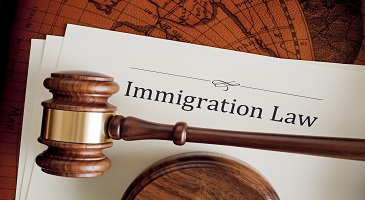The Unique Story
14 Years Of Experience In Legal Solution
more than 14 years of combined experience in immigration, citizenship, refugee protection, administrative law, human rights and many other related areas of these legal practices.
how can we help you ?
Our Pratice Areas

Immigration Assistance In Canada
Obtaining permanent residency, citizenship, work or study permits or sponsoring your loved one can be a complex process not without its challenges. In most cases, you must meet stringent criteria, provide the correct documentation, and be able to successfully navigate challenges that arise during the process. From the first meeting with one of our immigration attorneys, you will get help in understanding what is needed. They will prepare your for each milestone and guide you through obstacles should they arise.
Contact Us: 514-509-7731 or email: attd@tranlex.ca
A joint custody order can have one or both parts.
Specializes in civil and commercial litigation. The firm addresses such matters as unpaid rent, complex testamentary estates and recoverable or contested amounts. The firm also has expertise in construction work disputes, hidden defects and poor workmanship, mortgages, real estate transactions, shareholder dispute remedies, as well as seizure and execution cases.
Contact Us: 514-509-7731 or email: attd@tranlex.ca
Are You Going Through a Divorce or Separation?
When the decision is made to end a relationship, there are many matters to resolve. Who will have custody of the children? Who will obtain which assets? Will one partner need to provide support to the other, or to the children? To get each of these matters resolved, you need an experienced family lawyer on your side who knows how to defend your rights and help you obtain the results you seek.
Contact Us: 514-509-7731 or email: attd@tranlex.caWe are unique
Why Choose Us?
Professional Lawyers
Attentive customer service and legal expertise, from the receptionist who takes your call to the attorney assigned to your needs.
Document Reviewing
Ensure what Document writing is legal work.
Honors & Award
Queen Elizabeth II Diamond Jubilee Medal
Discounted Rate
Our flat-fee pricing and innovative billing models take the guesswork out of billing making it easy to plan ahead.

Some Helpful
Frequently Asked Questions
Browse Help Topics
You’d like help in understanding the process of obtaining permanent resident status in Canada, what is involved, and what will be asked of you at each step of the way
You would like to work or study in Canada
You would like to visit Canada
You would like to come to Canada as an investor, entrepreneur or self-employed worker (Quebec Immigration Programs for Business People)
You would like to participate in one of the provincial or federal economic immigration programs
You would like hire employees from abroad to work in your company in Canada
You would like to participate in one of the International Experience Canada categories (work and study in Canada)
You would like to sponsor a relative to join you in Canada
You would like to submit a Humanitarian and Compassionate Grounds Application
Our dedicated immigration attorneys can help you with any of the following:
Permanent Residency
Family Sponsorship
Humanitarian & Compassionate Grounds Application
Citizenship Application
Visitor Visa
Study Permit
Work Permit
Skilled Worker Application (Express Entry)
Labor Market Impact Assessment for employers
Provincial and federal immigration programs for business people
Most people that travel through Canada need either a Visitor Visa, a Transit Visa or an Electronic Travel Authorization (ETA).
The type of document that you need depends on:
- the country that issued your travel document
- your nationality
- how to travel to Canada (air, boat, or land)
- the type of travel document that you will travel with
A temporary resident visa (TRV) is an official document issued by a visa office which is placed in a person’s passport showing that they have met the requirements to be admitted into Canada as a temporary resident. A temporary resident can be authorized to remain in Canada as a visitor, a student or a worker.
A temporary resident permit (TRP) is an authorization to travel to Canada if you are otherwise inadmissible to do so. People may be inadmissible to enter Canada for criminal reasons, for example. In order to be eligible for a TRP, you must demonstrate that your visit is justified. A TRP is issued for the duration of your stay in Canada and it becomes invalid when you leave Canada.
If you have a criminal record, you may be inadmissible to enter Canada. Depending on the crime and how long ago you were convicted, you may be able to overcome criminal inadmissibility if you are deemed rehabilitated, if you applied for rehabilitation and was approved, or if you were granted a record suspension or a Temporary Resident Permit.
People who would not normally be able to obtain Permanent Residence in Canada may apply on Humanitarian and Compassionate Grounds. These applications are exceptional as you are seeking an exemption to the application of the immigration laws. Factors which are considered in a Humanitarian and Compassionate Grounds Application are: the various ties to Canada, the consequences that would be suffered by the applicant should they return to their country of origin, and the best interests of the children involved.
People who would not normally be able to obtain Permanent Residence in Canada may apply on Humanitarian and Compassionate Grounds. These applications are exceptional as you are seeking an exemption to the application of the immigration laws. Factors which are considered in a Humanitarian and Compassionate Grounds Application are: the various ties to Canada, the consequences that would be suffered by the applicant should they return to their country of origin, and the best interests of the children involved.
A bodily and personal injury claim can cover any of the following types of accidents and/or injuries which may have been caused by the fault or negligence of someone else, whether an individual, a private or public company or a government body or organization:
- Work accidents
- Slips and falls on private or public property
- Injuries resulting from assault
- Injuries due to use of a product or service
- Animal attacks or bites
Our personal injury attorneys can help defend your rights and will work with you to seek fair compensation for the harm and damages suffered, including:
- Lost wages resulting from your inability to work
- Your need for home care and assistance
- Medical expenses incurred to treat your injury
- Psychological or mental harm, stress and/or trauma
- Pain, suffering and loss of enjoyment of life
- Inability to care for yourself or your family members
- Physical or mental disability
Each case is different, yet there are a number of common factors the courts will assess in evaluating your personal injury claim:
- The cause of the injury: was someone else at fault either intentionally or through negligence
- Medical expenses
- Expenses for ongoing rehabilitation
- The impact that the injury has on your ability to work and on the activities of daily living such as household chores and recreational activities
- Degree of physical or mental anguish
- Degree of pain and suffering due to the injury
- Loss of life/companionship
Damages awarded for bodily or personal injury are often classified as “compensatory”, meaning that they are intended to compensate the injured party for what was lost due to the injury or accident. Some compensatory damages are relatively easy to quantify, such as reimbursement for medical expenses, while others are more difficult, such as attributing a dollar value to the mental anguish, suffering or inability to enjoy life due to limitations caused by the injury.
Once one of our bodily and personal injury attorneys thoroughly investigates and reviews the circumstances of your injuries along with police report, medical records and receipts for ongoing care or rehabilitation (see question, What documents will my attorney need?), he/she will then review other cases in Quebec law (jurisprudence) looking for examples of similar situations and the amount the court awarded to the plaintiff.
The length of the procedure necessary to resolve your case will depend on the nature and the complexity of your matter. Your attorney will be able to give you an estimate after receiving and reviewing all the important facts on the case.
In order to evaluate your case and assess the amount you can claim before the court, Tran Duc Anh Thu’s attorney will require the following documents:
- Copies of any police reports detailing the incident
- Copies of your medical records relating to the incident or additional care
- Receipts for treatment or ongoing rehabilitation
In Quebec, when going through a divorce or separation, you are not obligated to hire an attorney. You have the right to manage the various affairs linked to a separation or divorce on your own and represent yourself in court.
However, a divorce or separation can be quite complex, requiring numerous decisions and choices. Coming to agreement with your spouse on issues related to custody, division of property and other assets, child support and alimony payments can be difficult. When dealing with so many issues, it is not uncommon for partners or spouses to find themselves in conflict and unable to achieve a suitable resolution.
A family attorney will work on your behalf to ensure that your legal rights are upheld and the arrangements made on all of these important issues protect your interests and those of your children.
Acting on your behalf, a family attorney negotiates with your spouse or your spouse’s attorney to ensure that your legal rights are upheld and the arrangements made protect your interests and those of your children. Combining mediation, negotiation and legal proceedings if needed, a family attorney can help you with each of the following:
- Divorce applications
- Amicable agreements and settlements out of Court
- Child custody arrangements
- Spousal or child support arrangements
- Partition of family patrimony, including your home, savings, RRSP and other belongings
- Property and co-ownership issues, such as the sale of the family residence and maintaining the status quo pending legal proceedings
- Discovery of undisclosed assets and undeclared income
- Protection of assets by way of a seizure before judgment pending legal proceedings
- De Facto Spouses
- Foreign decisions granting maintenance orders or alimentary support
We offer an affordable hourly rate for all family matters. Upon evaluating your particular situation, we are able to assess the amount of work required and provide you with an estimate of the cost to help you plan and budget.
The duration of divorce or separation proceedings depends on the complexity of your case and the degree of cooperation between you and your spouse. Generally, when there is no serious dispute between the parties involved, the proceedings and lawyers’ interventions are completed within reasonable delays. In the case of conflict or disagreement between the parties, a trial date is often necessary, which can take up to one year to obtain.
Before granting custody and ordering alimony payments, the judge presiding over a family law case studies the spouses’ emotional and financial situation and may also hear expert testimony from qualified professionals such as psychologists or social workers. The judge then decides which spouse will be awarded custody of the children. or if shared custody will be granted. If the children are old enough, the judge will also consider their opinion regarding who they prefer to live with. In the case where parents agree on joint custody, it is up to them to decide on the terms and conditions.






